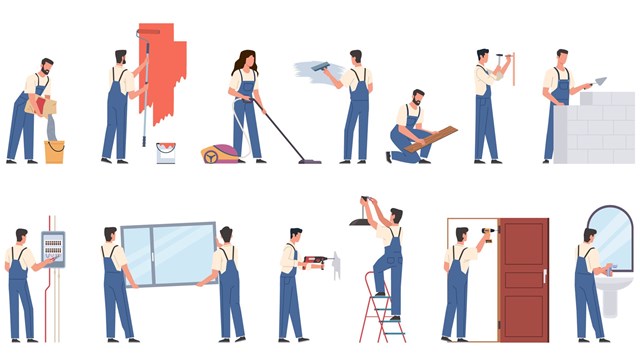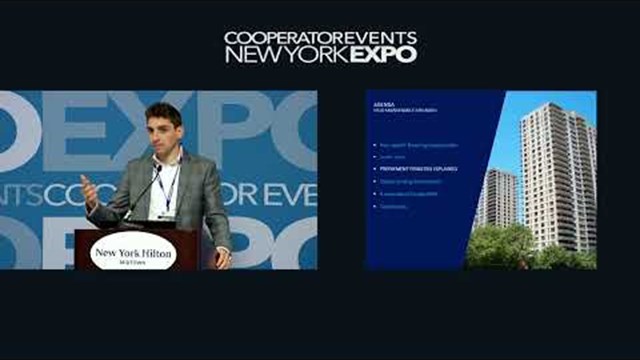
Take a trip with me across the beautiful Hudson River, to West Orange, New Jersey, where homeowners in a condominium community are currently being billed an average of $30,000 per household to replace faulty siding. As reported by CBS New York, the board claims that the siding had been breaking bad ever since the structures were improperly built in the 1980s. Despite owners’ objections, the board is technically allowed to assess such charges and make such decisions on the owners’ behalves.
When asked for comment by CBS2, the president of the Board of Trustees David Kesselhaut, allegedly left a voice mail for residents in which he chided them for going to the media and said the project is going forward as planned. He refused to comment directly.
Making an Assessment of You and Me
Of course, this is far from the first time that an association has levied either a large assessment, an assessment that necessitated a quick turn-around, or both, on a condo or co-op. In 2014, the residents of 2 Fifth Avenue (as covered by the New York Times here), a prestigious co-op, was forced to come up with $30 million to replace a leaky facade that threatened the structural integrity of the property. The in-fighting over how to pay for the repairs led to a mutiny by some of the ownership, who rallied like minds and unseated the incumbent board in an election, implementing its own strategy to finance the project.
Perhaps the big kahuna—an assessment that is believed to be the highest ever in Boston—comes from Harbor Towers Condominiums, where unit owners were hit with a $76 million bill in 2008 to replace the HVAC system in the community's two waterfront towers. The one-time assessment, ranging from $70,000 to $400,000 per unit owner, led to a bitter political struggle and assertions by some residents that they would have to sell their units to pay the huge bill.
Anyone can play Monday-Morning Quarterback or tell you exactly what the White House is doing wrong, but it's different when you have to make the tough decisions. But are these assessments just passing the buck to unit owners, when boards refused to make those tough decisions over a period of years? Or are they real emergencies?
No Surprises
“The easy answer is, if you have a board that’s paying attention to its property and has a good superintendent on call, it can probably stay on top of things so as not to surprise ownership or shareholders,” says Bryan Mazzola, a partner with the Manhattan-based law firm of Cantor, Epstein & Mazzola, LLP. “And, while emergencies pop up, a board that has a good reserve fund can offer residents a low-cost loan, or will make arrangements with a lender to do so, such that a repair can be made. I’ve seen some buildings offer a discount to people that can pay up-front. Nothing huge, but, if some residents are able to pay more than others, they’ll be incentivized to do so in a lump sum while those who cannot afford the assessment outright on day one will be given other options.”
Phyllis Weisberg, a partner with the New York City law firm of Montgomery McCracken Walker & Rhoads, LLP, which also has offices in New Jersey, Pennsylvania and Delaware, recalls an instance wherein she represented a building that required a massive balcony rebuilding project. “The whole thing cost a lot of money, which resulted in a large assessment,” she says.
“But the board was aware that it needed to be done, and thus wrote letters to unit owners, explaining the project in detail. They also held a meeting with the project architect who went even further into the nuances thereof, and offered to answer any questions from the owners. I think that they even brought him back for a second meeting. The board had open lines of communication, basically bringing everyone along and educating them as to why the repair was necessary, why it required as much money as it did, and then made sure to communicate to those who were having trouble financially with the assessment how it was feasible.”
When a board fails to communicate properly, its days in office may be numbered. “Recently, a large property that I work with assessed its owners for $3 million,” related Jeffrey Stillman, vice president of Stillman Management, based in Harrison, New York. “It wasn’t for one specific repair in the sense that it stemmed from a single incident; rather, the complex had gotten hit with gas leaks and major structural damage repeatedly over the years—a lot of unexpected or unplanned major capital improvements—and the board, which didn’t want to put any debt on the property, was trying to build up a cash reserve for whatever was to come next. And the owners basically revolted. A new board was installed and the assessment got reduced, first by 40 percent and then by an additional 30 percent over the course of a year.”
Educate Your Membership
“It’s imperative that you educate your owners or shareholders such that, when they actually receive a bill for an improvement or a repair, they know why it’s happening, they feel as if their questions are being answered, and that the you’re being open and transparent with them,” explains Weisberg. “That helps take the sting out of paying a large sum of money. Yes, the board is absolutely the end decision-maker, but when you’re dealing with something as significant as these major assessments, it takes a little TLC to get through without causing a major uproar. At the end of the day, you’re all neighbors. You don’t want to create a we/they mentality.”
Mike Odenthal is a staff writer for The Cooperator.









Comments
Leave a Comment